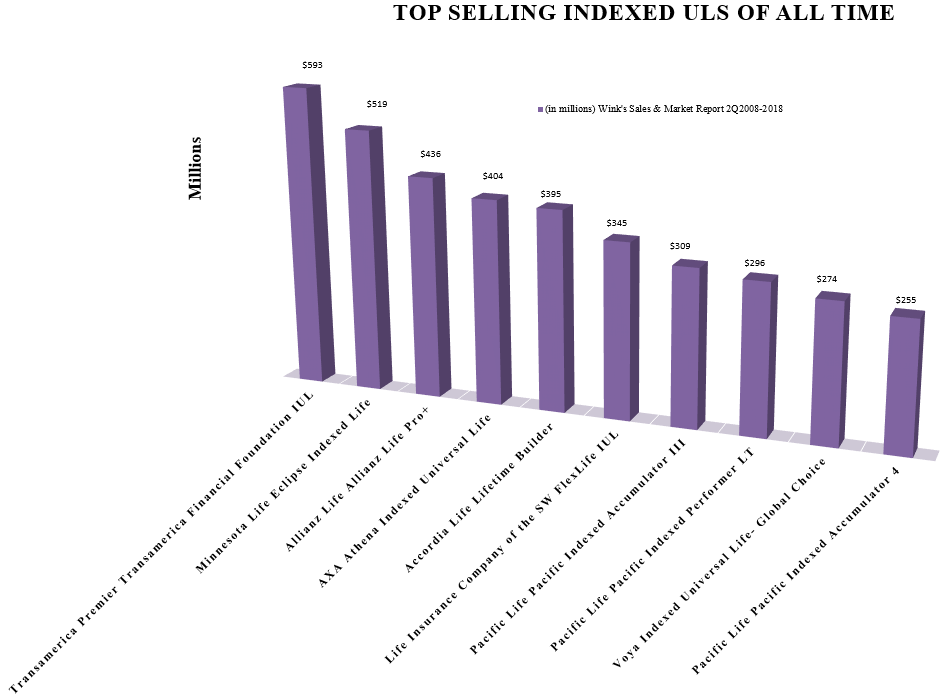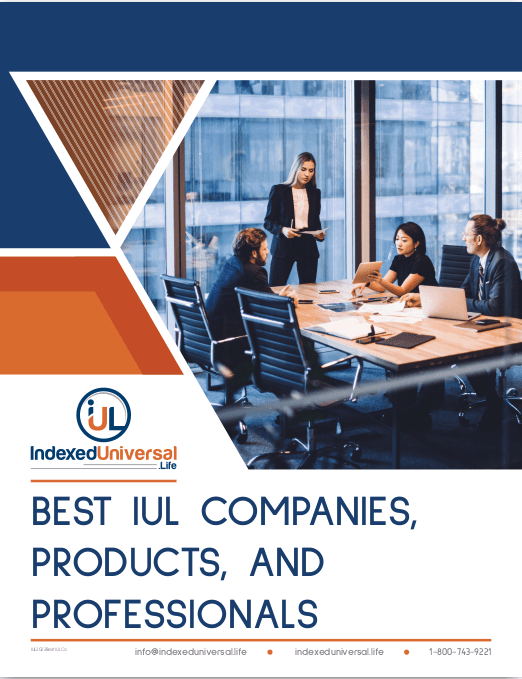All Categories
Featured
Table of Contents
1), frequently in an attempt to beat their category averages. This is a straw male disagreement, and one IUL people enjoy to make. Do they contrast the IUL to something like the Vanguard Overall Stock Market Fund Admiral Show to no tons, a cost proportion (EMERGENCY ROOM) of 5 basis factors, a turnover proportion of 4.3%, and an outstanding tax-efficient record of circulations? No, they compare it to some terrible actively taken care of fund with an 8% tons, a 2% ER, an 80% turnover proportion, and an awful document of temporary capital gain circulations.
Shared funds usually make yearly taxable circulations to fund owners, even when the value of their fund has dropped in value. Shared funds not only require income reporting (and the resulting yearly taxation) when the common fund is increasing in value, but can additionally enforce earnings tax obligations in a year when the fund has decreased in worth.
That's not exactly how common funds work. You can tax-manage the fund, collecting losses and gains in order to decrease taxed circulations to the investors, however that isn't somehow going to transform the reported return of the fund. Just Bernie Madoff kinds can do that. IULs prevent myriad tax obligation catches. The ownership of shared funds may require the mutual fund owner to pay approximated taxes.

IULs are very easy to place so that, at the proprietor's death, the recipient is not subject to either income or inheritance tax. The very same tax obligation reduction methods do not work nearly too with mutual funds. There are countless, often costly, tax traps related to the moment acquiring and selling of mutual fund shares, catches that do not put on indexed life insurance policy.
Chances aren't extremely high that you're going to go through the AMT as a result of your common fund distributions if you aren't without them. The remainder of this one is half-truths at ideal. While it is real that there is no revenue tax due to your beneficiaries when they acquire the profits of your IUL plan, it is also real that there is no income tax due to your successors when they acquire a mutual fund in a taxed account from you.
Indexed Universal Life Insurance Pros And Cons
There are better methods to stay clear of estate tax obligation concerns than getting financial investments with reduced returns. Common funds might cause income taxation of Social Security benefits.

The growth within the IUL is tax-deferred and might be taken as free of tax revenue through car loans. The plan owner (vs. the shared fund manager) is in control of his or her reportable income, hence enabling them to reduce and even eliminate the tax of their Social Security benefits. This set is terrific.
Here's an additional marginal issue. It holds true if you acquire a shared fund for say $10 per share simply prior to the circulation date, and it distributes a $0.50 circulation, you are after that going to owe tax obligations (probably 7-10 cents per share) despite the reality that you haven't yet had any type of gains.
However ultimately, it's actually regarding the after-tax return, not just how much you pay in tax obligations. You are mosting likely to pay more in taxes by utilizing a taxed account than if you purchase life insurance. You're additionally most likely going to have even more money after paying those taxes. The record-keeping needs for having common funds are significantly more complex.
With an IUL, one's documents are kept by the insurer, copies of yearly declarations are sent by mail to the owner, and distributions (if any type of) are totaled and reported at year end. This is additionally type of silly. Of program you need to keep your tax obligation records in case of an audit.
Life Insurance Stock Index
Rarely a factor to purchase life insurance coverage. Mutual funds are commonly part of a decedent's probated estate.
In addition, they are subject to the hold-ups and expenses of probate. The profits of the IUL policy, on the other hand, is always a non-probate circulation that passes beyond probate directly to one's named recipients, and is as a result not subject to one's posthumous financial institutions, unwanted public disclosure, or similar delays and costs.
Medicaid incompetency and lifetime earnings. An IUL can offer their proprietors with a stream of earnings for their whole lifetime, regardless of how long they live.
:max_bytes(150000):strip_icc()/Pros-and-cons-indexed-universal-life-insurance_final-1b83c0fd52154eb69edd47f99ab8927a.png)
This is valuable when arranging one's affairs, and transforming possessions to earnings prior to an assisted living home confinement. Common funds can not be transformed in a similar fashion, and are generally considered countable Medicaid properties. This is one more silly one promoting that poor people (you recognize, the ones who require Medicaid, a government program for the inadequate, to pay for their assisted living facility) ought to use IUL rather of common funds.
Index Universal Life Insurance Quotes
And life insurance policy looks horrible when contrasted relatively versus a pension. Second, people that have cash to buy IUL above and beyond their retired life accounts are going to have to be awful at taking care of money in order to ever get approved for Medicaid to spend for their assisted living facility prices.
Chronic and incurable illness motorcyclist. All policies will certainly allow an owner's easy accessibility to cash money from their plan, usually forgoing any kind of abandonment charges when such people endure a major health problem, require at-home treatment, or end up being constrained to an assisted living facility. Shared funds do not offer a similar waiver when contingent deferred sales fees still apply to a common fund account whose proprietor requires to market some shares to money the expenses of such a keep.
Group Universal Life Cash Accumulation Fund
You obtain to pay more for that advantage (cyclist) with an insurance policy. What a good deal! Indexed universal life insurance coverage provides death benefits to the beneficiaries of the IUL proprietors, and neither the owner nor the recipient can ever before lose cash due to a down market. Common funds offer no such assurances or survivor benefit of any kind.
Currently, ask yourself, do you in fact need or desire a survivor benefit? I certainly don't need one after I get to financial freedom. Do I want one? I expect if it were inexpensive enough. Obviously, it isn't low-cost. On standard, a buyer of life insurance policy pays for truth cost of the life insurance policy advantage, plus the expenses of the policy, plus the earnings of the insurer.
Group Universal Life Insurance Definition
I'm not totally certain why Mr. Morais threw in the entire "you can't shed cash" once again below as it was covered fairly well in # 1. He simply wanted to duplicate the most effective selling factor for these points I expect. Once again, you don't lose nominal bucks, however you can shed actual bucks, along with face serious opportunity price due to reduced returns.

An indexed global life insurance coverage plan owner might exchange their policy for an entirely different policy without setting off income taxes. A common fund proprietor can stagnate funds from one mutual fund firm to an additional without offering his shares at the former (thus setting off a taxable occasion), and redeeming brand-new shares at the latter, usually subject to sales charges at both.
While it holds true that you can trade one insurance plan for one more, the factor that people do this is that the very first one is such an awful policy that also after buying a brand-new one and going via the early, unfavorable return years, you'll still come out ahead. If they were offered the ideal plan the very first time, they shouldn't have any kind of need to ever before exchange it and go with the very early, unfavorable return years once more.
Latest Posts
Universal Life Insurance Company Phone Number
Wrl Ffiul
Universal Life Guaranteed Rate